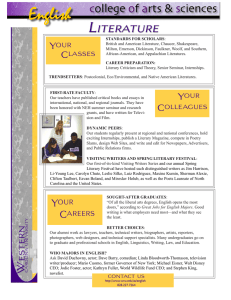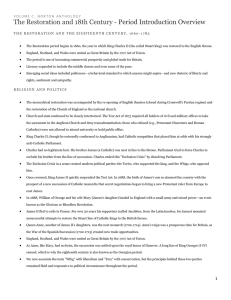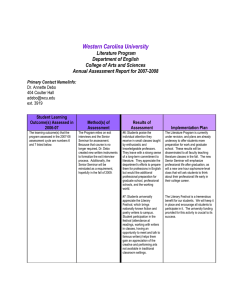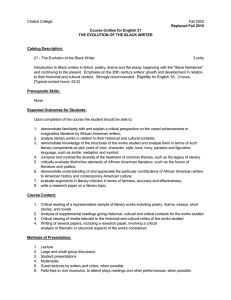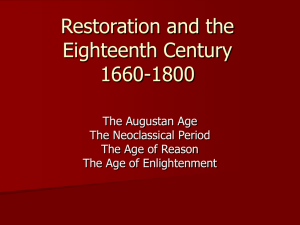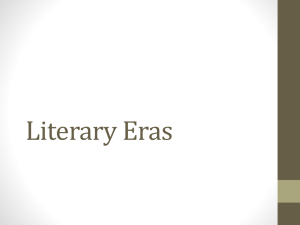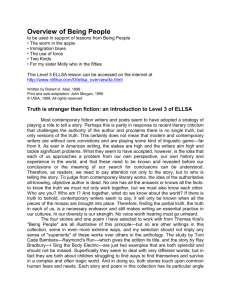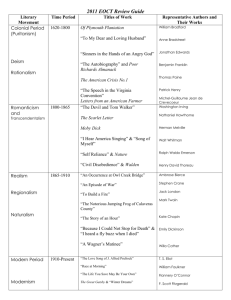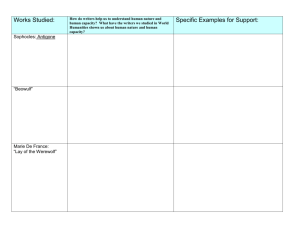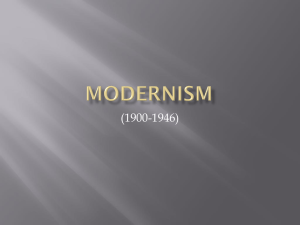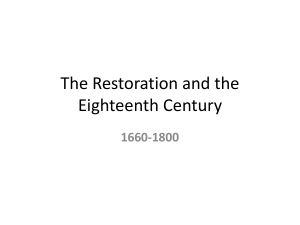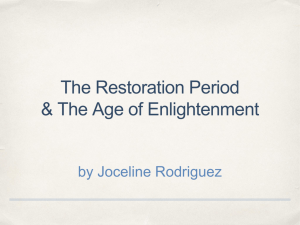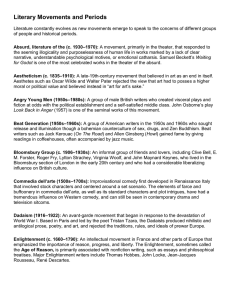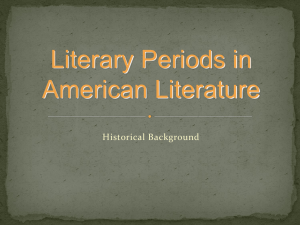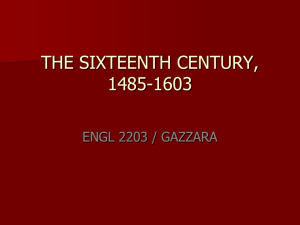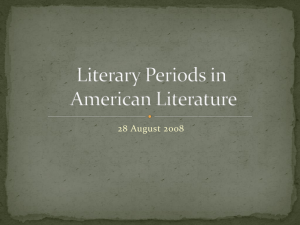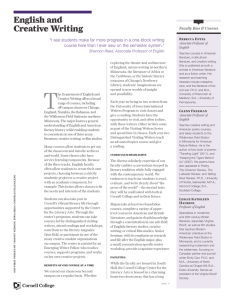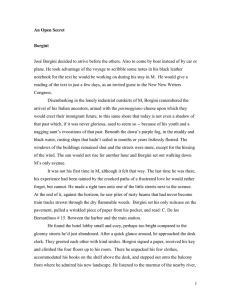Elements of Literature Sixth Course
advertisement
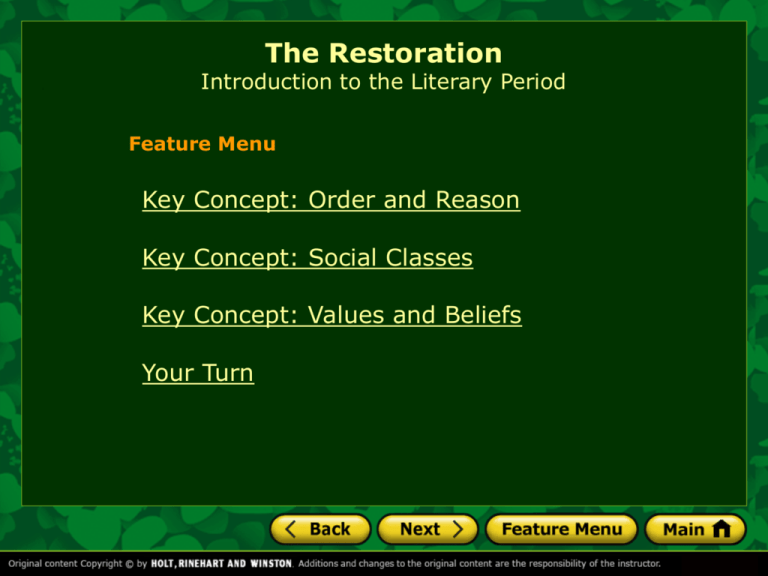
The Restoration Introduction to the Literary Period Feature Menu Key Concept: Order and Reason Key Concept: Social Classes Key Concept: Values and Beliefs Your Turn Key Concept: Order and Reason History of the Times • In 1660, after twenty years of civil war and Puritan dictatorship, England is ready for stability and the return of Charles II. • Five years later, London suffers an outbreak of plague, and the Great Fire ravages city in 1666. • The Glorious Revolution of 1688 enables William and Mary to take the throne without bloodshed. • Parliament becomes more powerful; a two-party system emerges. The Age of Reason ushers in era of scientific and rational thought. Key Concept: Order and Reason Literature of the Times • Restoration literature is influenced by French classical ideas. • The emphasis on cleverness, or wit, is intended for the upper classes. • Writers Alexander Pope and Jonathan Swift use satire in their works. • Journalism emerges as a new form of writing. • Neoclassical writers revive standards of order found in classical literature of ancient Rome. Key Concept: Social Classes History of the Times • The social order of Restoration England was based on the class system. • The hereditary nobility at the top of the system indulged in elegance and excess. • The poor lived in sewage-strewn streets or rat-filled tenements. Children had to work. • Industrialization created overcrowded slums and wretched working conditions. • Physicians served only the rich. Seventyfour percent of children died before age 5. Key Concept: Social Classes Literature of the Times • After the return of Charles II, English writers were receptive to French wit and literary taste. • The most successful literary form was the drama. Lavish theater dramas reflected the sophistication of Charles’s court. • On the stage, the comedy of manners appealed to men and women of fashion. • The novel finds an audience in the middle class. Key Concept: Values and Beliefs Literature of the Times • As the state religion, the Anglican church dominated religious life. • Protestants who remained outside the Anglican church were known as Dissenters. • Prominent writers of this period were Roman Catholics and Dissenters. • Many were denied public office and university education despite ample talents. The End

